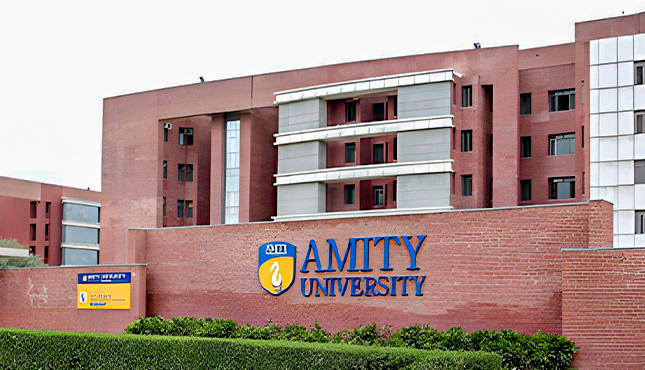
Welcome to the world of job recruiters! Whether you are a fresh graduate or an experienced professional, navigating through the recruitment process can be overwhelming. That’s where job recruiters come in – they act as your personal career coach and connect you with potential employers. However, understanding how recruiters work and what their roles entail may seem like a daunting task for beginners. But fear not! In this beginner’s guide, we will take you through everything you need to know about job recruiters, from their different types to how they find jobs for people. So sit back, relax and let us guide you through this exciting journey!
What is a Job recruiter?
A job recruiter, also known as a headhunter or staffing agency, is a professional who helps companies find suitable candidates for open positions. They essentially act as the middleman between employers and job seekers. Recruiters work with various companies across different industries to fill their hiring needs.
The main goal of a job recruiter is to help match qualified candidates with the right job opportunity. They are responsible for sourcing potential candidates through various channels such as online job boards, social media platforms, and referrals from their network.
Recruiters then conduct initial screenings on candidates by reviewing resumes and conducting phone or video interviews. If they feel that a candidate could be a good fit for an open position, they will schedule an in-person interview with the employer.
One key advantage of working with a recruiter is that they often have insider knowledge about available jobs that aren’t posted publicly yet. This can give you access to more opportunities than you would find on your own.
Recruiters serve as valuable resources for both employers and job seekers alike by facilitating connections and streamlining the recruitment process.
How do recruiters find jobs for people?
Recruiters are always on the hunt for new job opportunities that match their clients’ skills and expertise. They utilize a variety of methods to find jobs for people, including both traditional and modern techniques.
One of the most common ways recruiters find jobs is through their network of contacts. Recruiters often have established relationships with hiring managers and other professionals in various industries, allowing them to tap into potential job openings that may not be publicly advertised.
Recruiters also scour online job boards and company websites for potential job leads. This allows them to cast a wider net and discover opportunities that may not be visible through personal connections alone.
In addition, recruiters use social media platforms like LinkedIn to identify potential candidates who fit specific requirements or skill sets. By using keywords and advanced search filters, they can quickly narrow down a pool of candidates who may be suitable for certain positions.
Recruiters employ multiple strategies when searching for new job opportunities on behalf of their clients. These tactics help ensure that they are able to connect qualified individuals with relevant positions while providing valuable services as intermediaries between employers and employees.
The different types of recruiting
Recruiting comes in many shapes and sizes, each with its own benefits and drawbacks. One of the most common forms is contingency recruiting, where recruiters only receive payment from employers if they successfully place a candidate in a job. This means that competition can be fierce among recruiters for the same positions.
On the other hand, retained recruiting involves an employer paying a recruiter upfront to search for candidates on their behalf. While this may seem like it would lead to less competition among recruiters, it also puts pressure on them to find high-quality candidates quickly.
Another type of recruiting is contract staffing, which involves placing temporary workers in short-term jobs without the expectation of permanent employment. This can be beneficial for both employers who need extra help during busy periods and workers who want more flexibility in their schedules.
Executive search firms specialize in finding top-level executives for companies. These firms often have extensive networks and expertise within certain industries or job functions.
Understanding these different types of recruiting can help job seekers better navigate the hiring process and determine which recruitment methods might work best for them.
The role of the recruiter
Recruiters play a crucial role in the hiring process, acting as intermediaries between employers and job seekers. Their main objective is to help companies find the right candidates for their open positions while also helping job seekers find employment opportunities that match their qualifications and career goals.
One of the primary responsibilities of recruiters is to source potential candidates for job openings through various means, including online job boards, social media platforms, professional networks, and referrals from existing employees. They then conduct initial screening interviews with selected applicants to determine whether they possess the required skills and experience for the position.
Once suitable candidates have been identified, recruiters work closely with both parties to facilitate the interview process and provide guidance on salary negotiations and other aspects of employment contracts. They also ensure that all relevant paperwork is completed correctly before finalizing any hires.
Recruiters are not just limited to filling vacant positions; they also serve as advisors and mentors throughout an individual’s career journey by providing valuable insights into industry trends, market demand for certain skill sets or specializations, and even offering advice on resume writing or interviewing techniques.
Recruiters act as key facilitators in connecting talented individuals with rewarding career opportunities while simultaneously assisting companies in identifying top talent for critical roles.
The process of recruiting
The process of recruiting can vary depending on the recruiter and the company they work for. However, there are some common steps that most recruiters follow to find the right candidate for a job opening.
Firstly, the recruiter will receive a job order from their client company outlining the requirements for the position. The recruiter will then review resumes and cover letters that have been submitted by potential candidates or actively search for qualified individuals through various channels such as LinkedIn or other online sources.
Next, if a candidate is deemed suitable, they may be invited to an initial interview with the recruiter. During this interview, the recruiter will ask questions about their skills and experience to determine if they would be a good fit for both the position and company culture.
If successful in this stage, candidates may then be recommended to attend interviews with their prospective employer. The recruiter will provide feedback after each interview and assist in negotiating salary offers if necessary.
Once an offer has been accepted by a candidate, it is typical of recruiters to keep in touch with them throughout their probation period at their new company to ensure they have successfully transitioned into their role.
While recruitment processes can differ slightly between industries and sectors; it generally involves several stages including resume screening/interviewing candidates/ recommending suitable prospects/communicating feedback/negotiating offers/follow up post-hiring support.”
What should a job seeker do when meeting with a recruiter?
When meeting with a job recruiter, it’s important to come prepared and ready to make a strong impression. Here are some tips on what job seekers should do when meeting with recruiters.
Firstly, be sure to research the recruiting agency and the recruiter you’re meeting with. This can help you understand their areas of expertise and tailor your conversation accordingly. You may also want to brush up on industry trends or news that could be relevant.
When preparing for the meeting, bring along copies of your resume and any other relevant documents such as certifications or references. Dress appropriately in professional attire as first impressions count.
During the meeting, actively listen to the recruiter’s questions and take notes if necessary. Be honest about your career goals, strengths and weaknesses so that they can better match you with potential opportunities.
Don’t forget to ask questions yourself! Ask about their experience in the field, typical hiring processes or strategies for success in interviews.
Follow up after the meeting by sending a thank-you email or note expressing your gratitude for their time spent with you. This shows professionalism and leaves a lasting positive impression on them that may lead to future job opportunities down the line.
Conclusion
Navigating the world of job recruiters can be a daunting experience, but with this beginner’s guide, you should now have a better understanding of what to expect. Remember that not all recruiters are the same and it’s crucial to do your research before partnering with one.
Be proactive in reaching out to recruiters who specialize in your field and don’t be afraid to ask questions about their process and expectations. Always come prepared with an updated resume and be honest about your skills and career aspirations.
While working with a recruiter can increase your chances of finding the right job, it’s important to remember that they aren’t the only resource available. Keep networking, applying for jobs on your own, and building up your skills set so that you’ll always have options.
With these tips in mind, you’re well on your way towards landing the perfect job opportunity!










